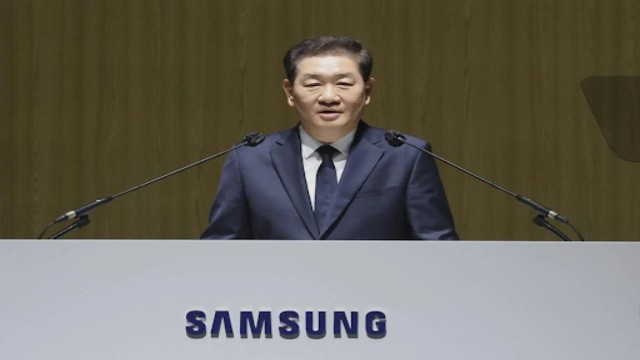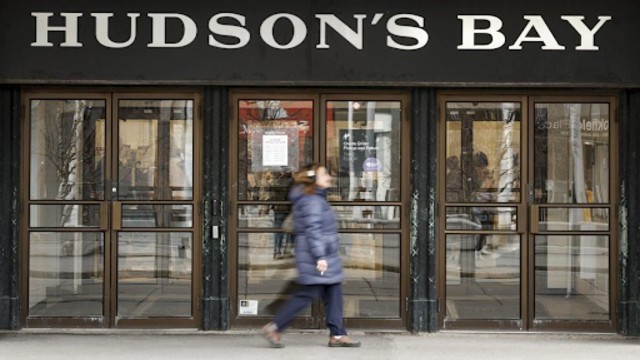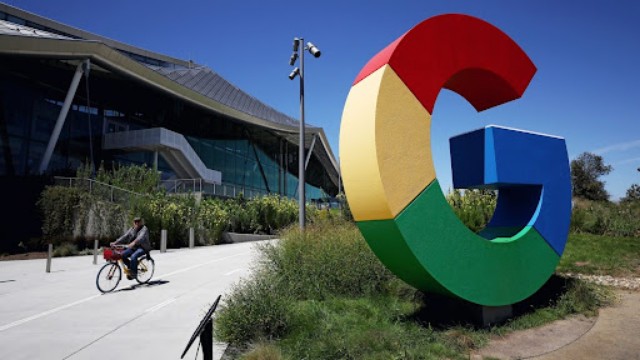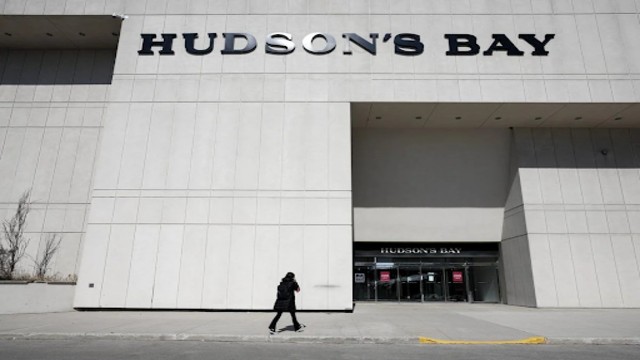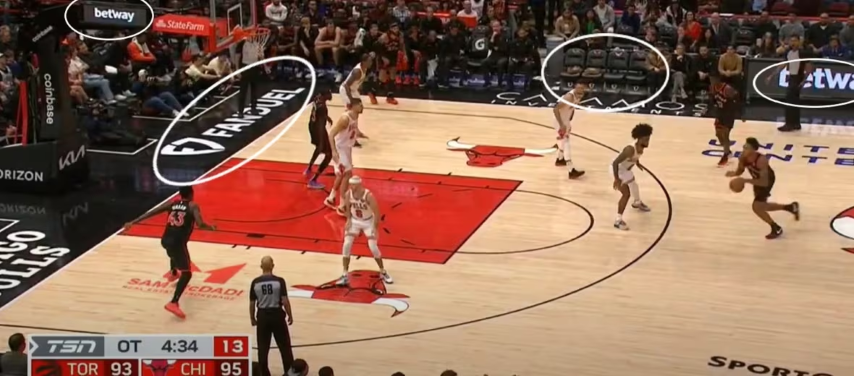
This still from an Oct. 27, 2023, broadcast of an NBA game between the Chicago Bulls and Toronto Raptors shows several gambling messages. (TSN)
In a joint effort between CBC's Marketplace and researchers from the University of Bristol in the UK, a recent study sheds light on the significant and concerning prevalence of gambling advertisements during sports broadcasts. The findings indicate that sports fans are exposed to these ads approximately three times per minute, constituting up to 21% of each broadcast, according to an analysis of seven NHL and NBA games.
Ubiquity of Gambling Messages
The study, conducted by researchers Jamie Wheaton and Raffaello Rossi, aimed to quantify various forms of gambling messages, including logos, commercials, sponsored segments, and on-screen betting odds during the broadcasts. Across the seven games examined, a staggering 3,537 gambling messages were tallied, averaging 2.8 messages per minute and occupying a fifth of the total viewing time.
Surprisingly, over 90% of these messages were found directly on the playing surface, emphasizing the immersive nature of gambling advertising during live sports events. FanDuel emerged as the dominant brand, contributing to over a quarter of the total gambling messages.
Concerns Over Normalization and Lack of Regulation
Experts, including Markus Giesler from York University, express concern over the seamless integration of sports and gambling, contributing to the normalization of what is traditionally considered a risky practice. The study also draws attention to the lack of regulation, with calls for more stringent measures to curb the overwhelming presence of gambling advertisements during sports broadcasts.
Ontario's Regulatory Landscape and the Gambling Explosion
The study delves into the impact of Ontario's regulated market, launched in April 2022, revealing a significant surge in gambling activities. iGaming Ontario reported a staggering $17 billion in player wagers during the third quarter of 2022/23, with gambling company revenues quadrupling from $162 million to over $658 million by December 31, 2023.
Rise in Gambling Addiction Concerns
Deirdre Querney, an addiction counselor, notes a surge in calls for help since the launch of Ontario's regulated market, citing complaints about the increased exposure to gambling advertising. Statistics Canada estimates that two-thirds of Canadians engaged in gambling or lottery activities in 2022, with up to 300,000 at risk of developing a problem gambling habit.
Industry Response and Responsible Gaming
Industry representatives, such as Paul Burns from the Canadian Gaming Association, defend the advertising practices, emphasizing the legal and regulated nature of the industry. However, critics argue that responsible gaming messages are lacking, with fewer than 3% of the observed gambling messages containing reminders about age restrictions or resources for problem gambling.
Impact on Individuals and Proposed Changes
Individuals, such as Noah Vineberg, who is recovering from a gambling addiction, express the difficulty of avoiding gambling advertisements, as they constantly threaten relapses. Public pressure has led to upcoming changes in Ontario, where the use of athletes in gambling ads will be prohibited from February onwards unless promoting responsible gambling messages.
Final Thoughts and the Way Forward
While detaching athletes from gambling marketing is viewed as a positive step by some, experts like Giesler and researcher Wheaton argue that it is insufficient to address the overarching issue of the volume of gambling messages. As the debate continues, the study underscores the need for comprehensive regulation and responsible advertising practices to protect viewers and mitigate the normalization of gambling during sports broadcasts.






